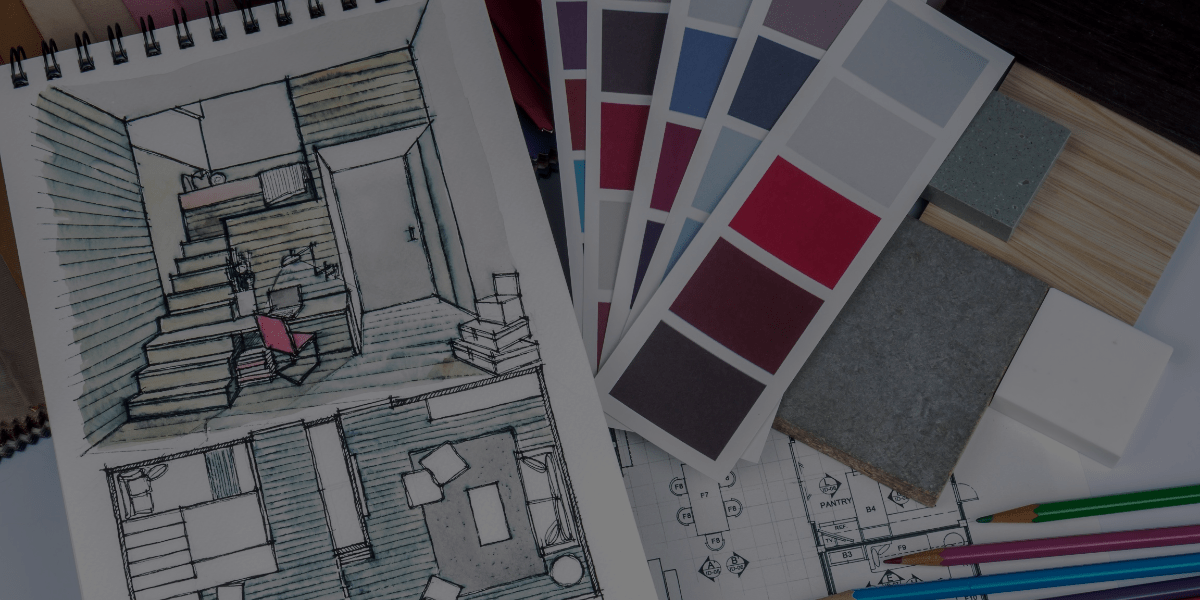Want to know how to become an interior decorator if you don’t have any prior experience? In the beginning, you might be overwhelmed on where to start. You know you have an eye for design, and you can’t wait to put your creativity to the test. But you don’t have any professional experience yet. So, how do you turn your passion into paid work?

Are you able to recite every HGTV show by heart? Are you confident that you could beat Holmes at his own game? That’s great and all – but without any professional experience under your belt, many clients will still be wary about hiring you. If they’re inviting you into their home, they’ll want some reassurance that you legitimately know what you’re doing.
Proper training from a professional certification program in interior decorating will give you the credibility to get your career off the ground. A certificate and professional designation provide reassurance to clients that you have the knowledge and skills to work on their home.
As an added bonus: the assignments you complete during your interior decorator training can be used in your professional portfolio! It’s a win-win!

1 – Working for a Firm
Once you’ve graduated from your certification program, and you’re looking for a regular job that helps you gain experience, you’ll be an appealing candidate for established home design firms. You can look for internships or entry-level design jobs in your field.
Keep in mind, however, that you’d be starting at the bottom of the ladder. This means you won’t receive the best assignments right out of the gate. You’ll likely be assigned some grunt work as well, but you’ll be in a safe space to gain experience under established professionals. So it’s well worth it!
2 – Freelancing
If you’d prefer to freelance or start your own business, consider using word-of-mouth to gain your first clients. Friends of friends or family members will be more likely to give you a chance. Put the word out that you’re launching a design business, and ask your immediate social circle if they know anyone who might need your services. Social media is especially helpful with this tactic, since your friends/family can share your announcement at the click of a button.

Important note: doing work for friends/family doesn’t mean you should give your services away! Charge a fair price for your work, no matter who’s paying you. Of course, you can offer a small “friends and family” discount if you feel you have to. But don’t sell yourself short! True friends and family will be happy to support you by paying you a fair wage. Even though you’re just starting out, you deserve fair compensation for services rendered.
3 – Community Outreach
Another option is to partner up with charities or not-for-profit organizations. Donating your services to help a cause you support is a wonderful way to gain experience AND do some good for your community! For example, you might reach out to your local woman’s shelter and offer your services to redesign their space, in exchange for portfolio pictures.
As another example, you could offer a home design package as an auction prize for your local animal rescue. Use your imagination! Most charities will be thrilled with your offer. You’ll gain experience and you’ll feel good about yourself.

Battling Imposter Syndrome
Have you ever been in a job where you feel like you just don’t belong? Like you have to be on your toes because any moment now, your colleagues will realize that you don’t know what you’re doing? This is a very common form of anxiety called imposter syndrome. Interestingly, imposter syndrome is more common in educated professionals than it is in novices. It also affects women a lot more than men.
When you first become an interior decorator, you might well be hit with imposter syndrome. You might think any of the following things:
- Who am I to tell people how to decorate their home?
- I don’t know more than the client.
- They’re better off not hiring me.
- My services are not worth this much.
- I’m scamming the client by charging them for this work.
It’s normal to experience some level of imposter syndrome. The key is to acknowledge when those thoughts surface, and to combat those feelings with positive thinking and affirmations. Tell yourself, “I’m an educated professional. I know what I’m doing!” Or, “Clearly the client agrees my services are worth paying for. They’d tell me if they were unhappy with my work!”
You can do this!
